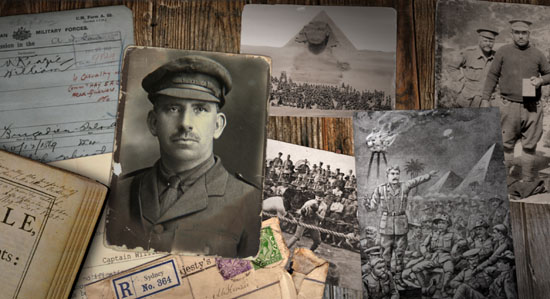The Anzac hero who saved not took life
Associate Professor Daniel Reynaud
Dean
Faculty of Arts and Theology
Avondale College of Higher Education
Ask Australians to name the most famous Anzac of World War I and most will probably answer, “Simpson, the man with the donkey.” While Simpson is a household name, the soldiers who fought in the war would give a different answer: Captain William McKenzie.
McKenzie served as chaplain of the 4th Battalion. An enthusiastic Christian minister who stood for evangelism and against booze, brothels and bad language, he might seem an unlikely candidate for most famous Anzac of the Great War. But in 1920, McKenzie’s popularity reached its zenith—it would take him more than three hours to reach Sydney Town Hall from his office on Goulburn Street, just three blocks away. People mobbed him just to shake his hand.
A Scottish-born Salvation Army officer, McKenzie’s tireless energy on the soldiers’ behalf earned their respect, while his charismatic personality won their love. He was a born leader with a tremendous sense of humour, a childlike innocence, integrity and constant cheerfulness.
In Cairo, McKenzie not only preached against the brothels but also went to the red-light district at night and literally dragged men out, putting them on a tram back to camp. He expected a knife in the ribs from the brothel owners for ruining their business.
On Gallipoli, McKenzie won the undying respect of the Anzacs. Like other chaplains, he conducted burial services, often under shell fire. But he went further, finding chocolates for each man, or cutting steps into a steep part of a track at night.
At the Battle of Lone Pine, McKenzie should have been in the rear trenches, but he followed the charge, carrying just a spade. He needed it: over the next few weeks, he sorted the living from the dead and buried 450 men. For his actions, McKenzie received the Military Cross.
McKenzie led something like 2000 to 3000 men to Christ during the war. This is what one of his letters, written in Egypt, records: “I realise the nearness of His presence and something of the sweetness and power of His great salvation. I confess that I cried myself to sleep last night or in the early hours of the morning after long meditation over the sacrifices and death of the Christ of God. This I think helped me to read the scriptures and preach the truth better at this morning’s parade . . . when for half an hour some 2000 of us there sang of the Cross and its meaning and pondered over the story once again.”
When McKenzie returned to Australia in 1918, thousands came to see him in every town and city he visited. In Sydney, his feet never touched the ground from the train to the town hall. In following years, at Anzac Day parades, his hand bleed from the sheer number of handshakes he gave.
Some have said the Anzacs were not religious. Perhaps, but McKenzie noted on Gallipoli that many showed an interest in God. He said: “Men realise as never before that the most manly thing to do is to worship and glorify God.”

